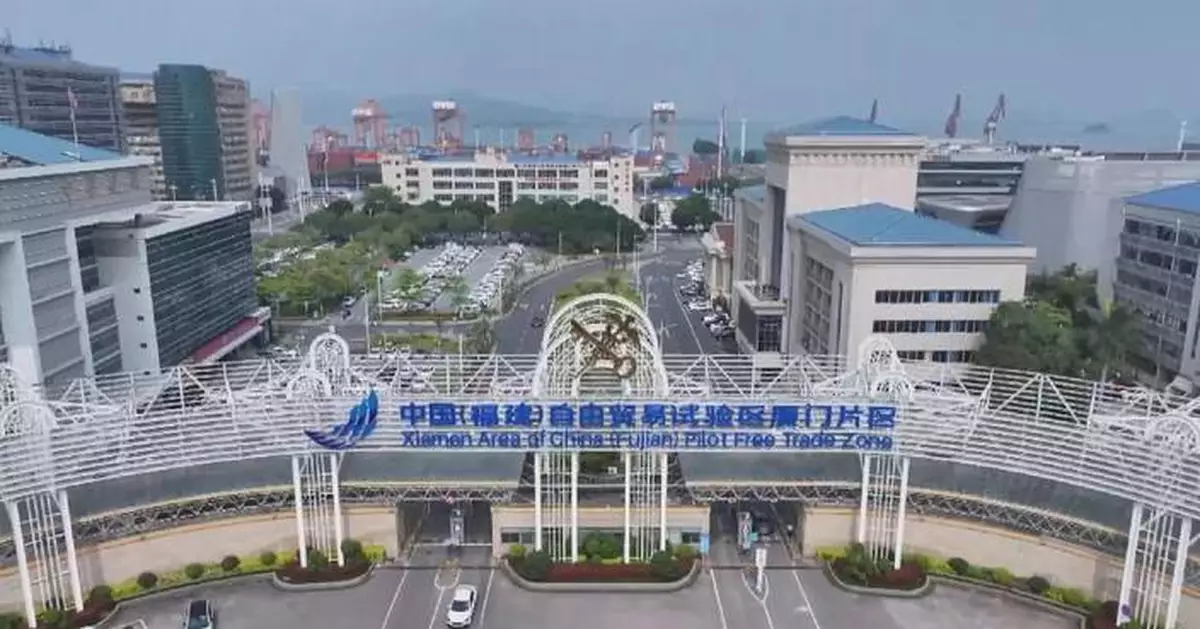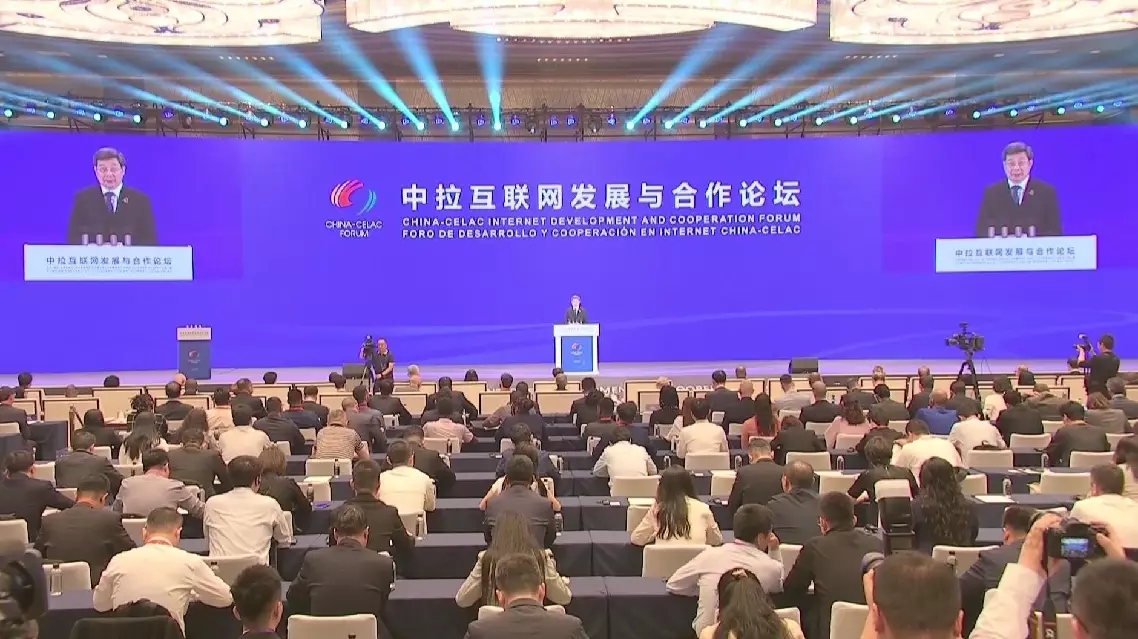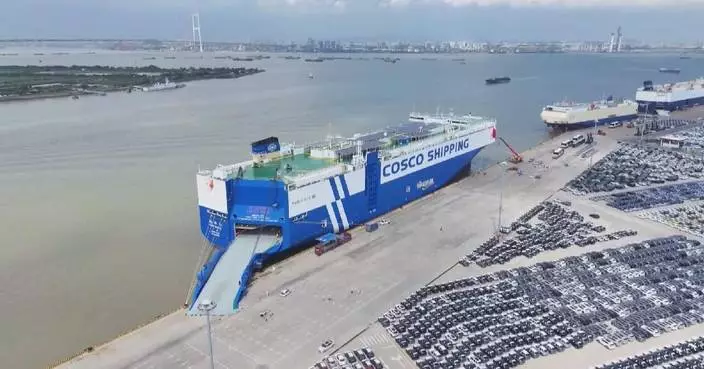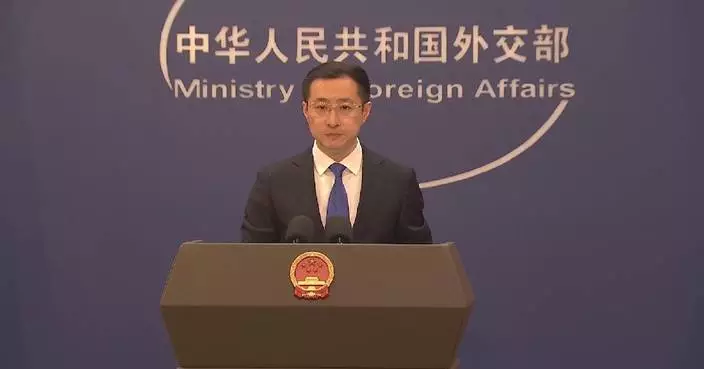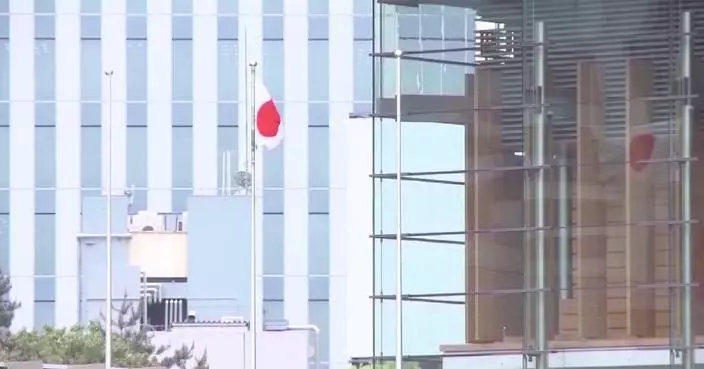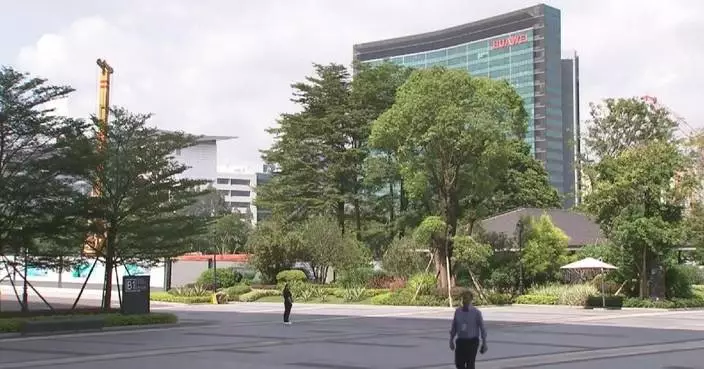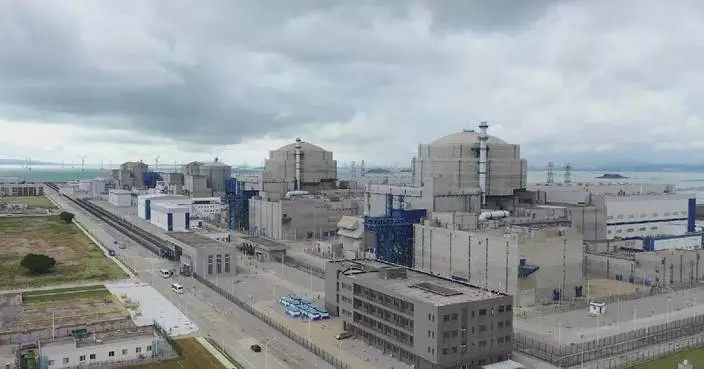The pilot free trade zones (FTZs) in south China's Guangdong Province, north China's Tianjin Municipality and east China's Fujian Province have made 140 high-quality institutional innovation achievements for nationwide promotion since they were established in April 2015, according to a press conference in Beijing on Friday.
The three FTZs have been committed to innovative and integrated reform, featuring the advancement of high-level pilot opening-up projects, rapid development of modern high-end industrial clusters and formation of models for regional integrated development.
The China (Guangdong) Pilot Free Trade Zone first adopted innovative measures such as reform in business registration and confirmation, which helps to save millions of yuan (hundreds of thousands of U.S. dollars) in costs incurred to enterprises every year.
The FTZ in Guangdong also headquarters China's first wholly foreign-owned shipping management company and seafarer dispatch agency.
It has kept expanding opening up in fields such as finance, law, education, healthcare and construction to Hong Kong and Macao, and recognizes the professional qualifications of 26 categories, including architects, physicians and tax agents from the two regions.
The China (Tianjin) Pilot Free Trade Zone took the lead in launching innovative models in green leasing and export leasing services, promoting development of the financial leasing industry, with the total scale exceeding 2.3 trillion yuan (around 315.07 billion U.S. dollars).
The FTZ in Tianjin issued China's first data exit management list and first standard specification for enterprise data classification and grading.
It has actively built an industrial cluster characterized by leasing of aircraft, ships and marine engineering equipment, and has become the second largest aircraft leasing cluster in the world.
The total assets of commercial factoring enterprises in the Tianjin FTZ are valued at 300 billion yuan (41 billion U.S. dollars).
The China (Fujian) Pilot Free Trade Zone has kept advancing reform in fields such as "non-stop" license processing for vessel registration transfer.
The FTZ in Fujian has released China's first safety guidelines for maritime transportation of containerized lithium battery energy storage systems, reducing logistics costs by 70 percent.
It has promoted integrated innovation in emerging industries such as bonded maintenance, the Internet of Things, and cross-border e-commerce, with the number and value of bonded maintenance orders for high value-added products like aircraft both ranking the first in the country.
The Fujian FTZ has also taken the lead in expanding opening up to Taiwan in over 50 fields including telecommunications and healthcare.
"As experimental fields of reform and opening up, the three free trade zones have cumulatively produced over 140 high-quality institutional innovation achievements that have been replicated and promoted at the national level, including the new one-stop supervision model for cross-border e-commerce export returns, the mutual recognition system of AEO (Authorized Economic Operator) certifications by international customs, and the entrusted production model of medical apparatus and instruments registrants. It provides a free trade scheme for innovative development of related industries," said Meng Huating, director of the Department of Free Trade Zones and Ports under the Ministry of Commerce, at the press conference in Beijing.
Over the past decade, the total imports and exports of the FTZ in Guangdong grew from approximately 110 billion yuan (15 billion U.S. dollars) in 2015 to approximately 740 billion yuan (101.3 billion U.S. dollars) in 2024, with an average annual growth rate of over 24 percent.
Meanwhile, a total of 138,000 new enterprises were established in the FTZ in Fujian, 8.8 times of the number before its establishment.
In the past decade, the FTZ in Tianjin has seen an average annual actual utilization of foreign capital of over 2 billion U.S. dollars, which signifies that only one percent of the municipality's land has represented over 40 percent of its actual utilization of foreign capital.
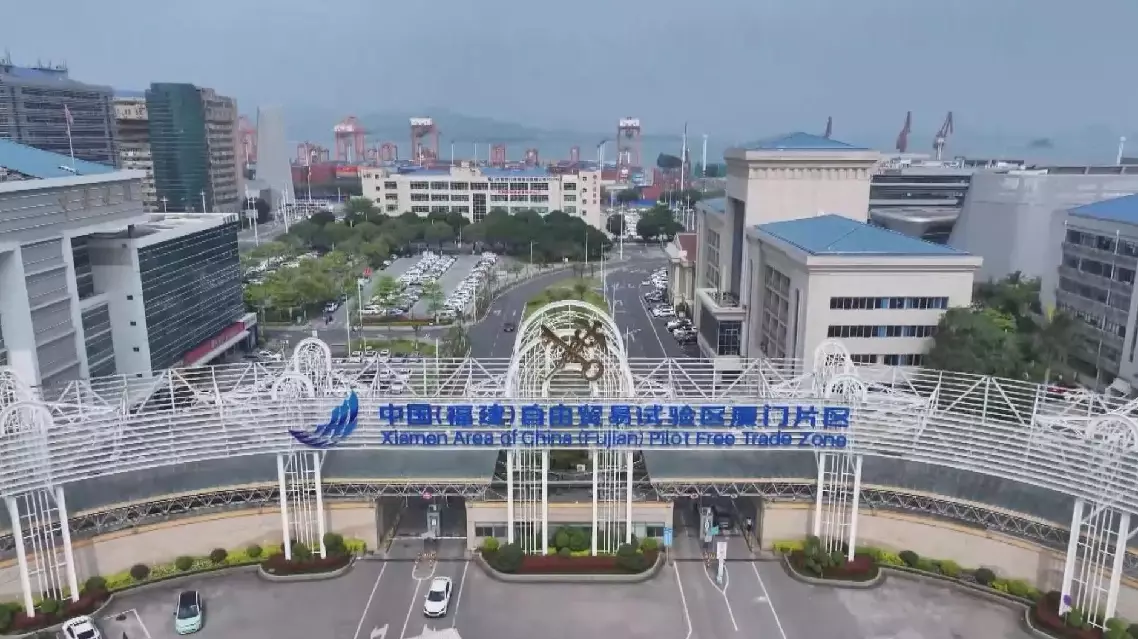
Pilot FTZs make 140 nationally promoted institutional innovation achievements: authorities


